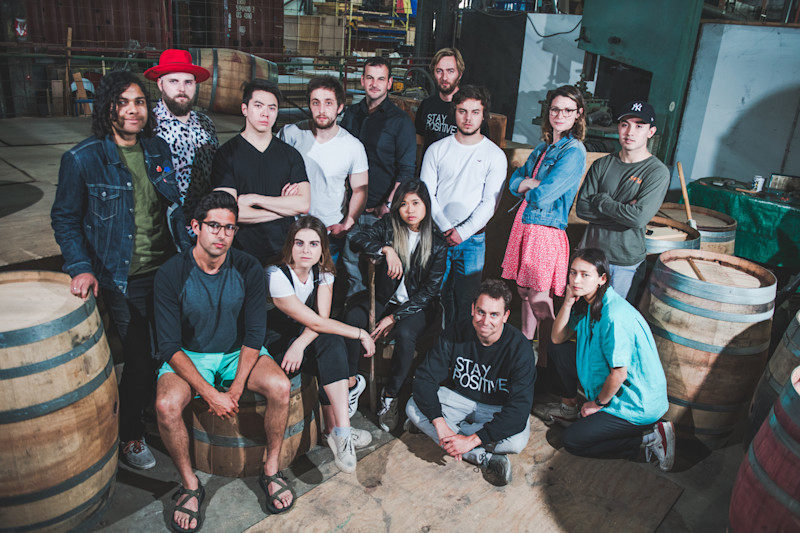- Iterate
- Meet The Team
- Investing in Private Companies Have Just Become Easier
Investing in Private Companies Have Just Become Easier
Changes to SEC restrictions on regulation crowdfunding will make it easier for everyday people to invest in private companies.

The SEC will be easing restrictions on regulation crowdfunding on March 15, making it easier for regular people to invest in private companies.
After months of lobbying, the Obama administration signed the JOBS Act in April 2012, legalizing crowdfunding for private companies through selling securities via regulated online crowdfunding portals. The rollout of the JOBS Act took the SEC almost four years, coming into effect on .
Prior to this, companies needed to be registered with the SEC, which was a lengthy and expensive process in order to receive investments from non-accredited investors. (An accredited investor must earn more than .)
Unfortunately, the 2016 SEC rollout was disappointing for many entrepreneurs. Under the Act, startups could only raise $1.07 million every twelve months, offerings had to be made through an intermediary, and businesses had to provide detailed financial and corporate information to the public.
Startups are often required to have built a strong product prior to its Series A funding, and $1 million was barely enough capital to keep many of the kinds of businesses that do well in crowdfunding, like CPGs and lofty moonshots, afloat. In January 2021, the SEC finally voted to , increasing the funding cap from $5 million. This change will significantly improve access to capital for small and medium-sized businesses and will help scale companies in the regulation crowdfunding space.
Wefunder, a public benefit corporation and the U.S. market leader, has been at the forefront of pushing for law changes around regulation crowdfunding. The company's co-founders, CEO Nick Tommarello and CTO Greg Belote, started Wefunder in 2012 because Tommarello wanted to invest in his friend's business.
"I don't feel a sense of meaning when I buy shares of Amazon. But startups? If I can support those I believe in, that's value beyond only returns," Tommarello.
Since its genesis, Wefunder has helped founders and small businesses raise almost $250 million, with half being raised within the past year.

Head of Operations at Wefunder Suzanna Rush believes that with the recent SEC changes, Wefunder will now be able to reach a whole new category of businesses.
"Now there's a whole new category of companies for who a million dollars wasn't really worth the hassle, but $5 million is," said Rush in an interview with The Org. "That usually means the quality of companies we're able to reach is higher and hopefully the returns going to investors has a greater potential upside."
Over the past four years, many regulation crowdfunding companies in the United States have been looking for workaround solutions to problems that existed within the SEC rules. In the UK, though, where the Financial Conduct Authority (FCA) monitors web-based crowdfunding in similar ways to established corporate finance firms, regulation crowdfunding itself is not a new concept.
The two largest regulation crowdfunding companies in the United Kingdom are Seedrs and Crowdcube. Seedrs first made its mark when the company raised Ā£1 million from Venture Capital Firm Draper Esprit. Two months later, in May 2012, they became the first regulation crowdfunding platform to gain accreditation from the FCA. Crowdcube was not far behind, receiving its accreditation from the FCA in February 2013.
Since then, Seedrs has recorded a total of in investments, helping companies such as now-global Revolut raise over in crowdfunding prior to launching its product. Similarly, Crowdcube has recorded over in investments made into campaigns and has helped raise over .
"I'd say the biggest frustration is when we look at what Seedrs and what Crowdcube are doing in the U.K.,ā Rush said. āThey're quite a bit bigger than we are working in a much smaller market, and so for us, there's no reason why regulated crowdfunding can't be much bigger than it is today, except that the regulations right now don't necessarily work in the interests of companies or in the interests of investors.ā
In the United Kingdom, investors are given tax incentives if they invest in young technology companies under the Enterprise Investment Scheme. The founders of Seedrs, Executive Chairman Jeff Lynn and Non-Executive Director Carlos Silva, saw this as a business opportunity while they were completing their MBA at the University of Oxfordās SaĆÆd Business School in 2009.
"We identified the U.K. as having a significantly more flexible path for small companies, one that would accommodate an equity crowdfunding type model in a way that the U.S. and many other countries didn't have at that point," Lynn said in an interview with The Org. "We were able to rely on existing rules, long before anyone started adopting their own bespoke rules, in order to build our businesses."
Lynn credits part of Seedrsā success in the United Kingdom to the emergent phase of the technology ecosystem during the time he was building his company.
"Many people were a lot more open to new approaches to things like fundraising. Part of my view on the new U.S. rules is the regulatory perspective, I think they're great. But I don't know how much they will overcome the very entrenched culture around how startups raise money in the U.S.," Lynn said.
Seedrs currently operates in the UK and Europe, with offices in both London and Berlin, but the company has ambitions to eventually go global. In 2014, the company purchased Californian-based equity crowdfunding platform, , in hopes of breaking into the American market but ultimately decided that it was not a good use of investments because of the extensive regulations around crowdfunding.
In October 2020, Seedrs and Crowdcube announced a merge. Jeff Kelisky, Seedrs CEO, will serve as CEO of the combined company. Darren Westlake, Crowdcube's CEO, will serve as Executive Chairman. The merger will be structured as an acquisition by Crowdcube of Seedrs. Both companies are currently working through regulatory approvals for the merger.

"We looked at each other's businesses, we both have some strengths and weaknesses and they're kind of complimentary. We have the opportunity to build something really big here if we come together, so it may well be in the next few months, with luck, we'll be one company," said Jeff Lynn, co-founder and Executive Chairman of Seedrs, in an interview with The Org.
The executive teams of Seedrs and Crowdcube hope that by merging, they will be able to compete more effectively in the UK and international markets. With the recent SEC changes, the company may once again revisit its entry into the U.S.
"We would love to come to the U.S. and we'll see how these new regulations play out practice. This could very well be the spur for us to do something," Lynn said.
--
The Org is a professional community where transparent companies can show off their team to the world. Join your company here to add yourself to the org chart!




